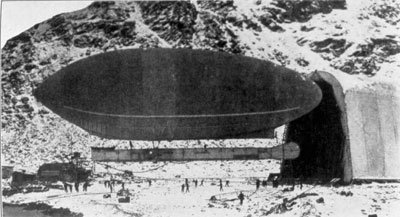Lessons from the last frontierby Michael Robinson
|
| A manned mission to Mars, if it happens, will be a dazzling event guaranteed to keep us glued to our televisions. But symbolism alone cannot carry the US space program forward. |
Wellman’s story is worth taking seriously, especially as NASA gears up for the next ambitious chapter in human space exploration. NASA’s course, like Wellman’s, has been shaped by tragic events. The destruction of Challenger in 1986 and Columbia in 2003 brought about much soul searching, and strengthened the agency’s commitment to safety. Yet NASA has focused most of its attention on improving the methods of exploration, rather than assessing its merits. Like Wellman, they have chosen to honor their fallen comrades by focusing on the construction of better machines, not the development of better missions. Consider President Bush’s 2004 speech “A Renewed Spirit of Discovery,” in which he lays out his vision for the U.S. space program. The document runs a little over 1,400 words. Boiled down, it says this: send Americans back into space, first to the Moon, then Mars. NASA now proceeds accordingly, gearing up, as Americans did a century ago, to send very brave people to very distant places.
But space exploration is a zero-sum game. Sending astronauts to Mars (a planet now studied efficiently by rovers, orbiters, and most recently, the Phoenix Mars Lander) requires an enormous investment that will come at the expense of smaller, more useful, scientific projects. Already NASA plans to cut millions of dollars from the space science budget to cover the costs of developing the Constellation Program.
A manned mission to Mars, if it happens, will be a dazzling event guaranteed to keep us glued to our televisions. But symbolism alone cannot carry the US space program forward. One hundred years ago, Americans faced the same dilemma on the Arctic frontier. In their relentless pursuit of the North Pole, explorers had abandoned science. After Robert Peary claimed the discovery of the North Pole in 1909, American scientists breathed a sigh of relief. Finally, scientific exploration of the Arctic could begin in earnest. Franz Boas, professor of anthropology at Columbia University, expressed the mood of scientists then, but he could have been expressing the opinion of many scientists now. “We must not forget that the explorer is not expected merely to travel from one point to another, but that we must expect him also to see and to observe things worth seeing.”
